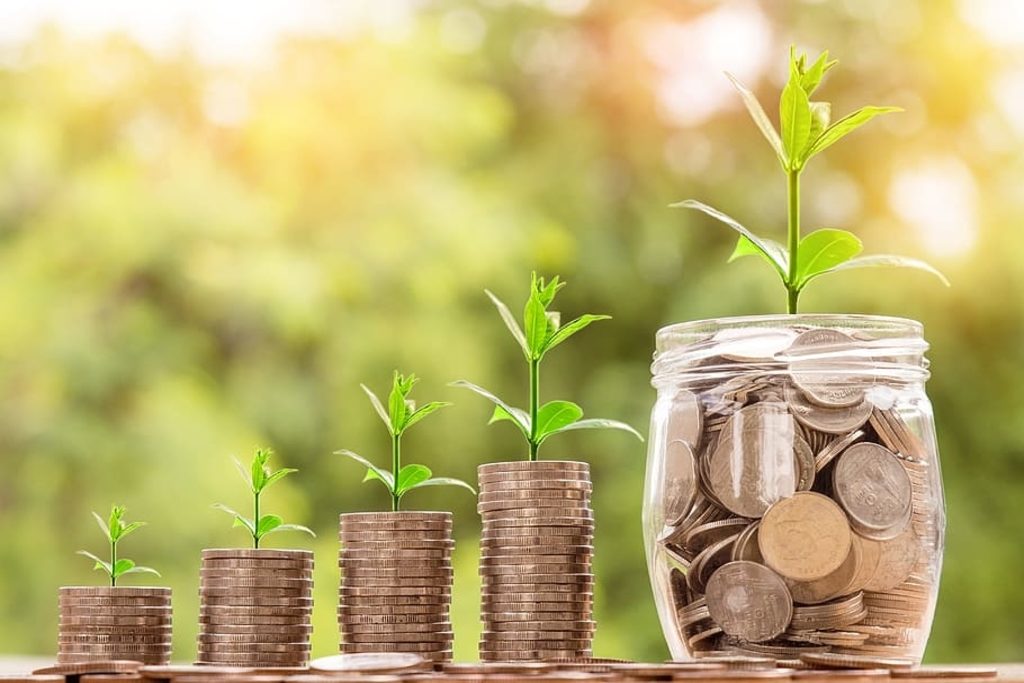The choice between economic development and sustainability is often considered to be irreconcilable. However, viewing the elements of ecosystems as resources that provide services puts a price on nature, helping, through through green investing, to shape the future of investments made by companies. ‘ESG investments’ are becoming increasingly important to investors who want to ensure that their money is aiding the sustainability of the planet rather than harming it.
Increasing public discourse over the past three decades has led to the advent of the ‘green economy’ and sustainable investing, an investment approach that considers environmental, social and governance (ESG) factors in portfolio selection and management.
A KPMG report on responsible investing defines ESG factors thus- the environmental criterion looks at how an investee company performs as a steward of the natural environment and whether it has any negative impact on ecosystems and human health. The social criterion examines how a company manages relationships with its employees, suppliers, customers and the communities in which it operates. The governance criterion is concerned with a company’s leadership, executive pay, internal controls, external audits and shareholder rights. For most ESG funds and sustainable investments, these criteria are some of the factors taken into consideration when evaluating investment opportunities.
ESG companies include Microsoft, Home Depot, Procter & Gamble, Alphabet (Google’s parent company) and Adobe.
The Value of ESG Investments
The total value of global sustainable investments in 2018 stood at US$ 30.7 trillion- growth of 34% over two years- which is a little under the combined GDP for the US and China at the time. As per a report by the Global Sustainable Investment Alliance (GSIA), Europe has the highest value of sustainable investing assets, with nearly half of the total global assets from the region, closely followed by the US. Additionally, green funds are now bearing improved returns from a decade ago, when a 2012 study concluded that they ‘underperformed on a risk-adjusted basis’ compared to traditional funds.
Half of these investments are in the form of public equities and over 33% as fixed income assets, also known as bonds. ‘Green bonds’ are debt instruments designed to raise funds for projects and businesses that have a positive environmental or social impact.
It is not so much affirmative action (undertaking sustainable initiatives, proactively auditing sustainability practices and reporting on them, etc.) by corporations and the public, as much as it is the existing and anticipated regulations that drive the volume of ESG investments, particularly those around green investing. Not surprisingly, among developing economies, the amount of investments applying ESG approaches remains low. The value placed on economic development continues to outbid the need for mitigating the climate crisis, at least presently.
A factor that reconciles the gap between economic returns and environmental benefits is the state regulatory structure. In Europe, regulations are designed to ensure that the cost (taxes, tariffs, caps, etc.) of ignoring the element of sustainability is higher than that of the returns accrued otherwise. As a result, when the push is from top-down in the form of policies and regulations, the pull from bottom-up is a natural consequence.
As per research conducted by Moody’s Investor Service, issuance of green bonds is slated to increase by 20% in 2019 to reach a total value of US $200 billion. It also observes that the demand for green bonds far outpaces the supply. Governments are increasing their commitment towards climate causes and encouraging green bonds, and repeat bond issuers are increasing, both of which bode well for their sustained market growth.

In the photo: Performance of FTSE World versus that of FTSE4GOOD. Photo Credit: DataStream, courtesy of KPMG report titled, Responsible Investing – A fad or the future? , Published in Feb 2018.
Issues
As the economy around sustainability expands, there are concomitant issues. For instance, while developed countries account for a large majority of green investments, questions arise as to whether they are simply trying to ‘look good’ while covering up for their rampant past development at the cost of the environment. Further, the relevance of ESG criteria when evaluating investments in developing countries should be considered and examined. The question of whether the burden of balancing economic development and impact on the environment and society at large now seems to sit with developing countries.
With the world becoming ‘flatter,’ cross-pollination of ideas across the globe has never been easier. Developing countries may benefit from adopting the advances being made in the field of sustainability elsewhere. Similarly, grass-root innovations emerging from developing countries can be replicated in other contexts. In the same flat world, media and information play a great role in managing perceptions; states and businesses are likely to be cautious of their public image, adhering to ESG practices as a result.
The other aspect of sustainable investments is that of economic returns, which is naturally of importance to investors. Institutions investing other people’s money should not only ‘do good’ but also ‘do well.’ The KPMG report quotes a study concluding that introducing ESG factors can in fact improve risk-adjusted returns.
Methodologies
Another area of focus to increase the confidence in ESG is consistent methodologies. Owing to a lack of this, the process for ESG ratings may not always be objective. Since regulations and disclosures vary by country, there is no one criteria that may be used across countries. Similarly, the criteria may vary by industry. As France’s financial regulator puts it, lack of standards may lead to widespread ‘greenwashing’ (the process of conveying a false impression or providing misleading information about how a company’s products are more environmentally sound) in the EU region and may risk ruining the credibility of the market.
When all is said and done, the numbers tell the real story – ESG investing is increasingly becoming mainstream. While some may argue that it is ‘too little, too late’ to place emphasis on such measures, humanity needs to focus on slowing the effects of the climate crisis in any way it can. Mobilising the business world to help in this endeavour is one such way to make a real difference.
Editor’s Note: The opinions expressed here by Impakter.com columnists are their own, not those of Impakter.com. Photo Credit: Earth.Org.
This article is part of an editorial collaboration with Earth.Org. The Earth.Org Series can be found here. The original publication can be found here.
About the Author

Abdul Rahoof K K
Rahoof is an award-winning journalist and a researcher with experience in the fields of environment, criminal justice, health, lifestyle, and international trade. He has worked with the World Health Organisation (WHO) and the International Centre for Journalists (ICFJ) in special projects. Besides two journalism awards, he has won Hinrich Foundation’s Global Trade Leader Scholarship. He has worked as a reporter and sub-editor in various Indian newspapers and holds a Master’s Degree in Journalism from Hong Kong Baptist University. He can be contacted at rahoof[at]earth.org.











